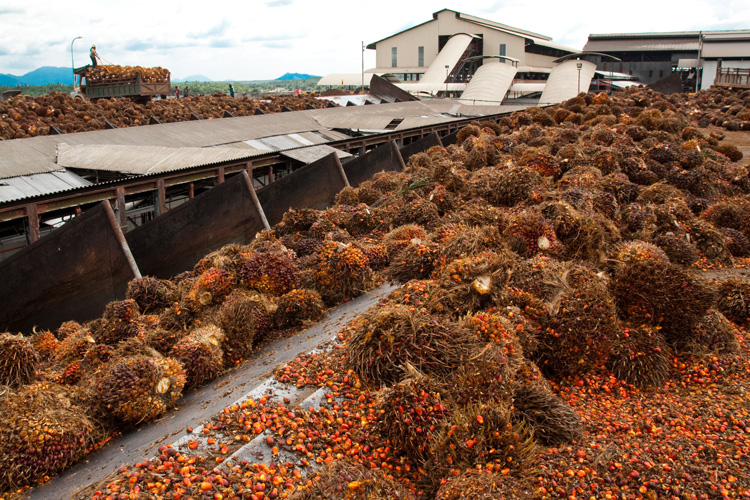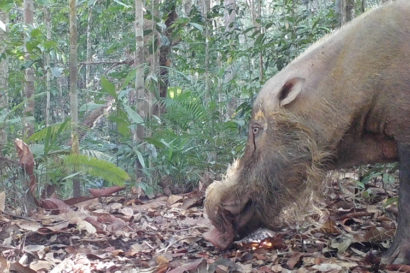Palm oil plantations fuel pigs that ruin Southeast Asian forests

The proliferation of palm oil plantations throughout Southeast Asia has led not only to widespread deforestation but also to the proliferation of wildlife that destroy remaining forests, according to a new international study.
For more than two decades, scientists working in tropical forests in peninsular Malaysia have observed immense shifts in the tree community surrounding the plantations, which produce fruit rich in oil used in a wide range of food and cosmetic products
“We knew that forest understory was dying, but we didn’t understand why,” said Matthew Luskin, lead author of the study that appeared this week in the journal Nature Communications. “Once we started looking outside the forest to the surrounding oil palm, the story became clear.”
Since forest animals like monkeys and pigs feed on the palm fruits, Luskin’s team focused on the impact of wild boars.

The researchers found that the presence of oil palm fruit led to a 100-fold increase in the number of wild boars living in adjacent forests. These wild boars not only ate tree seeds but overturned soil for food and uprooted trees for nesting material, disrupting tree sapling density. By comparing forest areas that were fenced to exclude wild boars, Luskin and his collaborators found that wild boars reduced the number of small trees by over 50 percent, raising concerns about the future health of the forests.
“Even protected areas are not safe from oil palm,” said Luskin, who recently obtained his Ph.D. from the Department of Environmental Science, Policy and Management. He is now a research fellow with the Smithsonian Tropical Research Institute’s ForestGEO network, based at Nanyang Technological University in Singapore. His co-authors included ESPM professors Matthew D. Potts and Justin Brashares.
